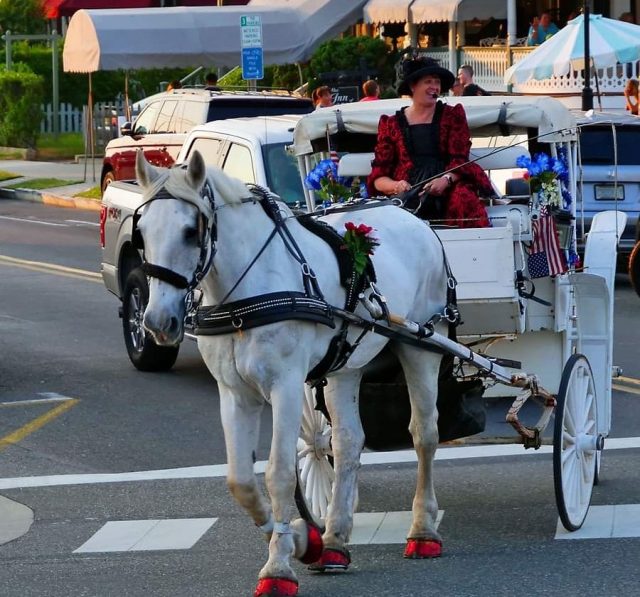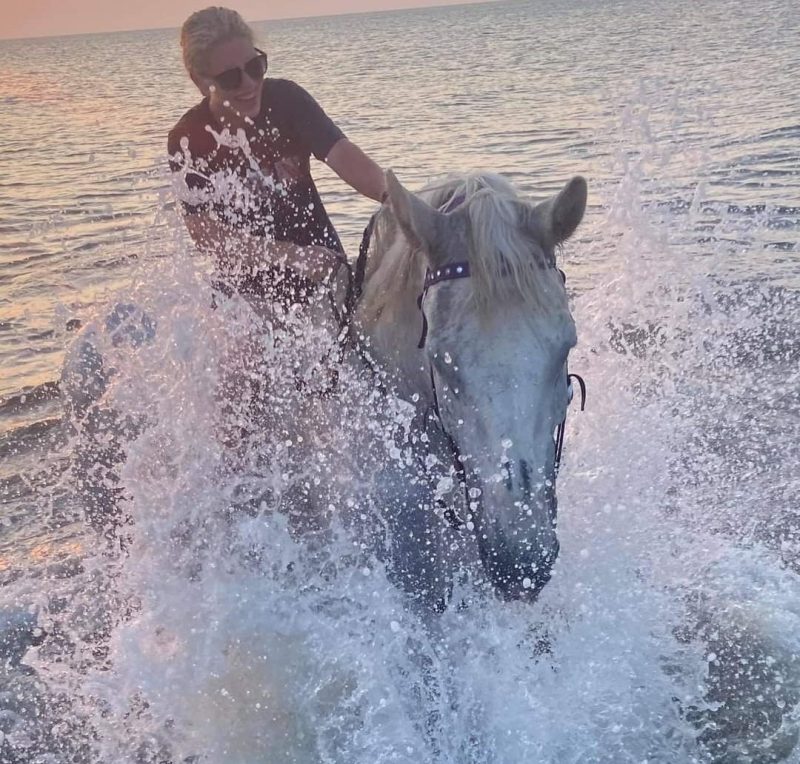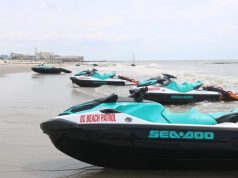
By MADDY VITALE
His name was Ice. He was a Percheron draft horse in his teens, weighing about 1,900 pounds and standing more than 19 hands high.
He was a carriage horse for the Cape May Carriage Company known for his impressive size, striking white color and gentle disposition.
On Thursday night, Ice was pulling a carriage of visitors in Cape May when he went to his knees.
At first, the carriage driver thought that Ice was just getting ready to lie down, as horses sometimes do at inopportune times. Ice stood up, then went down again and passed away.
“It was around 8 p.m. on Thursday night. I got a call,” Cape May Carriage Company owner Chantel Semanchik said in an interview Friday. “We rushed down there immediately.”
Semanchik felt sadness and shock. The carriage horses are well taken care of and Ice, who was one of 14 horses at the carriage company, did not exhibit any signs of medical trouble Thursday, nor in the past six years that Semanchik had owned him, she said.
Her first thought was that Ice suffered a heart attack. “I reached out to my vet immediately and to Mid-Atlantic (Equine Medical Center) to have a necropsy done,” Semanchik said.
By midnight, Ice’s body was up at Mid-Atlantic Equine Medical Center in Hunterdon County.
Semanchik said the heat could not have been a factor. It was cool at the shore on Thursday evening.
“This was not heat related. Last night was not hot. We had this horrible heat thing and we cancelled tours,” she said of the steamy weather earlier in the week. “When it is really hot, we take the horses to the beach to go in the water.”

Ice was a former carriage horse in New York City. Semanchik said she used to work as a horse carriage driver in New York’s Central Park and was contacted about Ice.
“He was in the city for a few months. He was a great horse, but they contacted me. He was so quiet, but he was too big to be in the city,” she noted. “They thought he would be more comfortable out of the city.”
Carriage horses spend more time in stalls when in the city, in contrast to life on the farm in Cape May County, she noted.
She wants the public to know that the carriage horses “don’t need to be saved.”
“We know this is a tragedy that was in public. But he could have been hit by a car or humans could have been killed. While this is a tragedy, he literally stopped, lay down, and passed away,” Semanchik said. “It was just his time. But we are obviously under the fire now.”
She said over the years, the drivers get attached to the horses that they care for.
“These horses take care of us. They are our livelihood. You bond with them. The lady who drove Ice most of the time was off Thursday. She is an absolute wreck over his death.”
Semanchik hopes to find out soon through the necropsy just what exactly happened to Ice, who seemed to be a perfectly healthy carriage horse.
“He had a great life. Especially, since we’ve had him. He worked a few days a week during the season and five months of the year he was off,” Semanchik said. “I have worked with carriage horses my whole live and never had a horse die on a shift, until now. We will miss him.”







